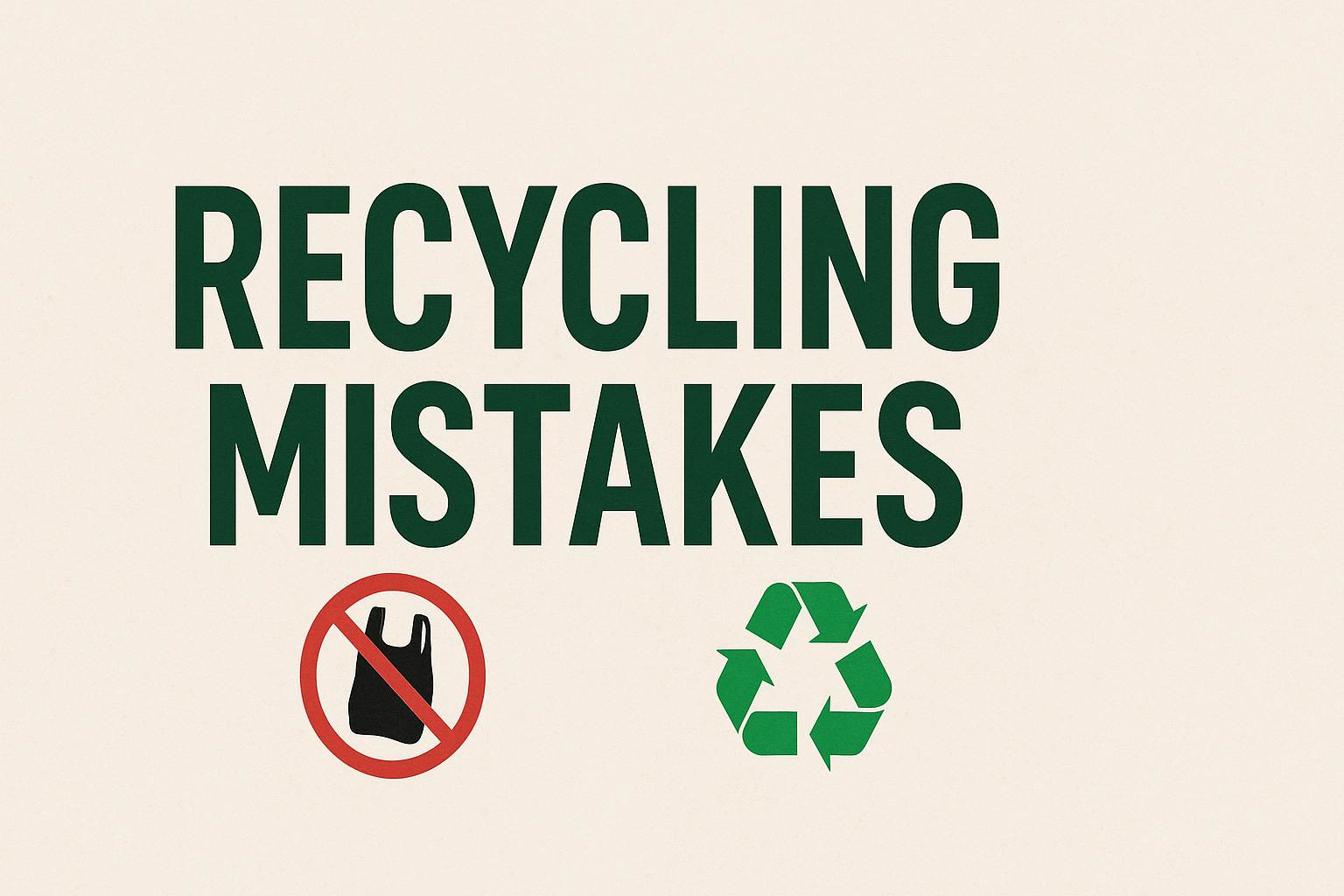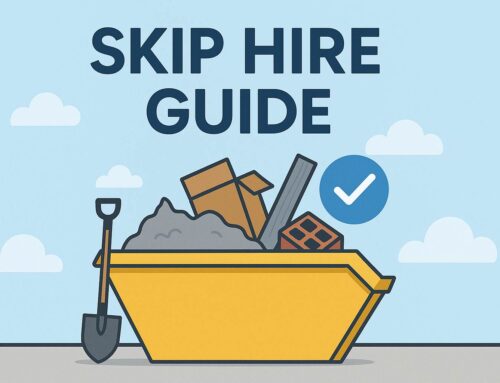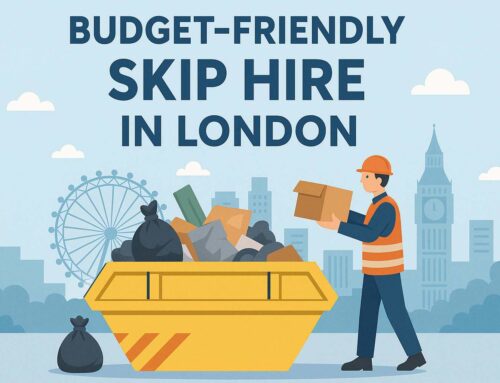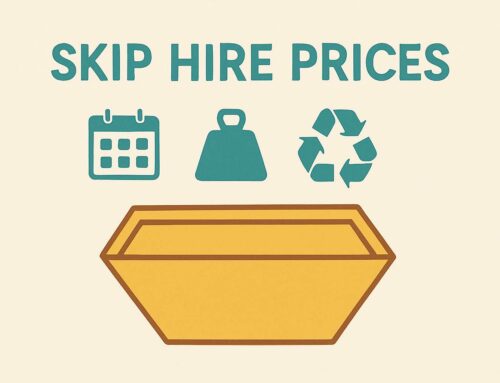5 Common Recycling Mistakes to Avoid
Recycling is an important part of modern garbage management because it reduces the need for landfills, protects natural resources, and lessens environmental damage. However, common recycling mistakes can make these perks much less useful. JN Skips, known for offering affordable skip hire prices and mini skip hire services, stresses the importance of following the right recycling steps to ensure the collected materials are processed and used again. This guide lists five things not to recycle incorrectly and gives you tips on what you should avoid when recycling to do it better.
Not Rinsing Containers – What’s Wrong with Food Waste?
People often make the mistake of not washing items before putting them in the recycling bin. Food and liquid still on other recyclables, especially paper, can cause big groups of materials unfit for recycling. This not only makes recycling less useful but also makes the process more expensive. This is a key household recycling mistake.
Tips on How to Clean and Get Items Ready for Recycling
To keep food containers from getting dirty, it’s important to rinse them well. Clean jars, bottles, and cans with the water you used to wash dishes. Before recycling, remove any food residue and ensure the items are mostly dry. This simple step makes it much more likely for your recyclables to be appropriately handled.
Putting Recyclables and Non-Recyclables Together – Know What Not to Recycle
People often make the mistake of mixing things that can’t be recycled with things that can, which can cause whole loads to be sent to dumps. It’s important to know your area’s recycling rules, such as the London recycling rules, which can differ depending on the city or town.
How to Sort Your Recyclables Correctly
Always check the local recycling rules to ensure you know what to recycle and what not to recycle. Sorting will be easier and more effective if you have different bins for things that can be recycled and things that can’t. To keep recyclables in good shape, it’s also important to teach everyone in the family how to separate things.
Putting Trash in Bags – A Common Skip Hire Mistake
A big issue is people putting recyclables in plastic bags before putting them in recycling bins. The contents of these bags aren’t recycled because most recycling centres don’t open them. This results in what not to recycle being mixed in, and everything may end up in landfills.
The Best Ways to Collect and Move Recyclables
Keep your recyclables loose in the bins so they can be handled properly. Use a container or cardboard box that you can empty into the recycling bin and then use again if you need to gather recyclables in one place before throwing them away.
Not Taking Care of Paper Recycling
Paper Products with Contaminants
Paper can be recycled often but can’t be recycled after being tainted with food, oil, or other materials. For instance, pizza boxes that are dirty with grease can’t be recycled. This is one of the things not to recycle when contaminated.
How to Throw Away Shredded Paper Correctly
Often, recycling centres can’t sort shredded paper because it’s too small. If you can, put it in a waste bin. If you can only recycle, find out if nearby facilities will take shredded paper and follow their instructions for getting rid of it.
Throwing Away Glass Incorrectly – Know What to Not Recycle
Different Kinds of Glass and Reusing It
Not every piece of glass is the same. Bottle glass can be recycled, but Pyrex, ceramic, and mirror glass can’t and must be disposed of differently. This is one of the most overlooked recycling mistakes.
Correct Ways to Throw Away Glass
Sort glass that can be recycled from glass that can’t be, and ensure the glass pieces are whole. Broken glass should be wrapped and thrown away with other rubbish to keep cleaning workers from getting hurt. Avoid placing what to not recycle, like non-recyclable glass, in your skip to prevent contamination – a common skip hire mistake.
Summary
If you don’t make these common recycling mistakes, your recycling programmes will work much better, and the recovered materials will last longer. You can help improve the recycling system by taking the time to rinse containers, separate items properly, avoid bagging recyclables, handle paper disposal, and sort glass correctly.
JN Skips encourages everyone to follow these simple yet effective steps, reflecting our dedication to protecting the environment and managing waste smartly. Avoid common skip hire mistakes and how to avoid them by understanding what not to recycle and keeping your recyclables clean and sorted.
FAQs:
What are the most common mistakes made when recycling?
As for the most common recycling mistakes, not washing food containers, contaminating recyclable materials, using plastic bags to contain recycling bins, recycling “used” paper, and casting away non-recyclable glass all come to mind. It’s a good idea to avoid these mistakes in order to enhance the efficiency of your local recycling initiative.
Are plastic bags accepted in the recycling bin?
No. Household recycling bins do not usually accept plastic bags. One of the most common misconceptions is that recyclables can be kept in plastic bags. The truth is, most recycling facilities do not open bags, so everything in it may be disposed of in a landfill instead. Recyclables should always be kept loose, or reusable containers should be employed.
What types of glass should not be recycled?
Ceramic, mirror, window, and Pyrex glass should not be forwarded to household recycling bins. These types of glass can melt at different levels of temperatures to contaminate entire batches of recyclable materials. Only clean, whole bottles and jars are suitable for glass recycling.
Why is rinsing food containers important before recycling?
Food remnants may dirty paper and other recyclables, hurting the entire recycling process. Soiling all the paper and clea,n dry containers aids in better sorting and processing of the materials at recycling plants and aids in lower contamination rates.
How do skip hire services assist in the recycling of plastic waste materials?
Hiring skips from a reputable skip company team like JN Skips ensures that the waste is accurately sorted and well processed. They give clear instructions on what can and cannot go in the skip, which increases the chances of recycling.





